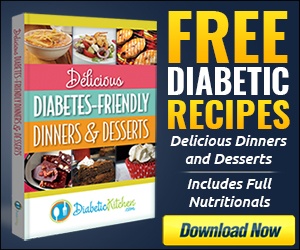Bok Choy
People who eat more cruciferous vegetables (like Bok choy) have a lower risk of developing breast, lung, and colon cancer. Bok Choy’s mix of calcium, iron, zinc, phosphorous, vitamin K and magnesium all contribute to building and maintaining strong bones. It’s folate, potassium, vitamin C, and vitamin B-6 make it a truly heart-healthy food.
Brussels Sprouts
Brussels sprouts have more cancer-fighting and detoxifying properties than any other vegetable! One cup of Brussels sprouts will provide 195% of vitamin K, 125% of vitamin C, and over 10% of vitamin A, vitamin B-6, folate, potassium recommended on a daily basis. Many studies have found that by increasing consumption of vegetables like Brussels sprouts we decrease risk of obesity, diabetes, heart disease.
Chia Seeds
Boosted immunity, better blood sugar control, sharper vision, anti-inflammatory properties, reduced anxiety and lower blood pressure. These are just a few of the benefits attributed to chia seeds’ combination of omega-3 fatty acids, antioxidants, fiber, protein, vitamins, and minerals. A true superfood!
Kiwi
Move over oranges – one kiwi contains 110% of your daily requirement of Vitamin C! Not only are kiwi full of vitamin C, they are packed with antioxidants. One study even showed that the specific combination of antioxidants in kiwi helps protect cell’s DNA against damage. Some experts suggest this protection can help prevent cancer.
Olives
The antioxidant nutrients in black olives prevent unhealthy cholesterol buildup in the arteries, thereby helping to prevent heart disease and stroke. Olives do contain fat, but it's the healthy mono-unsaturated kind, which reduces “bad” cholesterol and increases “good” cholesterol.
Oysters
Oysters contain twice the zinc, 25% of the iron, and 100% of the selenium you need every day. They are a great source of vitamin B12 and omega-3 fatty acids, both of which benefit brain function. It has been found that iron deficiency in the brain reduces concentration, while not having enough zinc can negatively affect one’s memory. Zinc also helps boost collagen production. Collagen is responsible for structurally supporting the skin and reduces sagging. It’s also essential for healthy nails and hair.
Pumpkin
One cup of cubed pumpkin contains almost twice the daily recommended intake of vitamin A. The alpha and beta carotene in pumpkin are essential for good vision. Mashed pumpkin has only 50 calories per cup and contains 3 grams of fiber. This fiber content is especially important for diabetics, as fiber helps to control blood sugar and overall health. One study from Sweden found that women who ate a diet high in fiber were 25% less likely to suffer from heart disease than those who did not eat a high fiber diet.
Sardines
In a single 3 oz. serving of sardines, there is 100% of your daily vitamin D, an incredible amount of omega-3 fats, 23 grams of protein, plus calcium, iron and potassium – all for around 200 calories.
Watercress
Watercress contains more vitamin C than an orange, more iron than spinach, more folate than bananas, and more calcium than milk. Watercress also contains vitamin A, vitamin B6, vitamin B12, iron, magnesium, and phosphorus.
Sources:
http://www.9news.com/life/wellness/optimum-wellness/chia-whats-in-a-seed/435973711
http://www.womansday.com/food-recipes/food-drinks/tips/g2211/best-superfoods/?


Leave a Reply